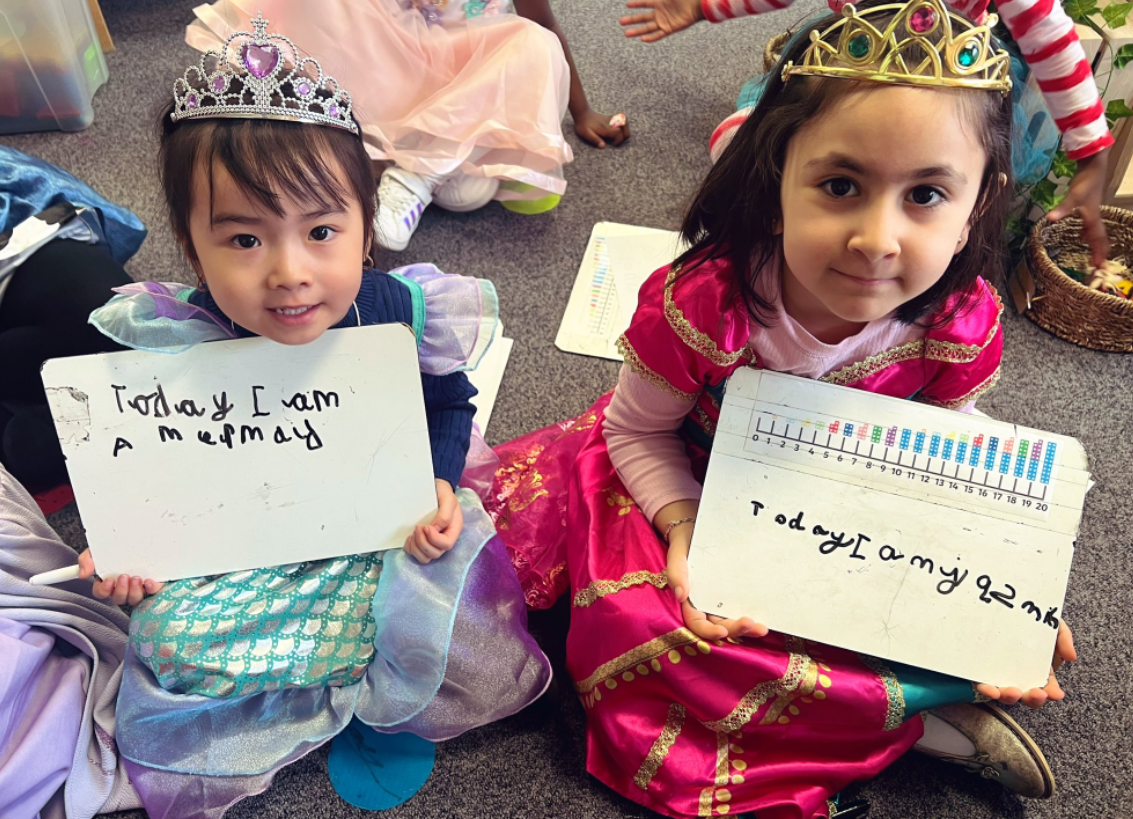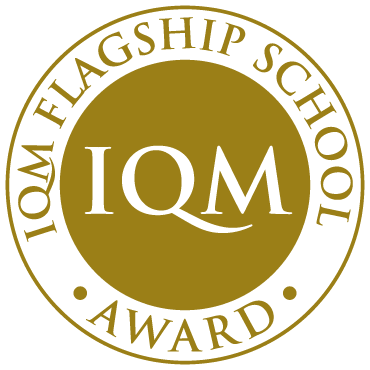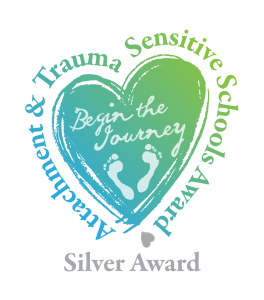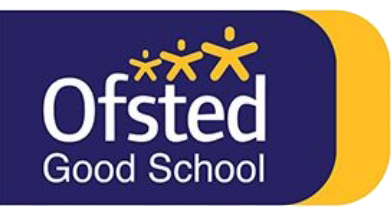Phonics and reading
Reading at Woodhill
At Woodhill, we believe that reading is a life-long skill. Children leave or school able to discuss with confidence a range of books and enjoy regularly reading for pleasure.
Our readers are equipped with the tools to tackle unfamiliar vocabulary and material. They are able to recommend books to their peers and enjoy reading a wide range of genres, including non-fiction. Children enjoy participating in book talk, including evaluating an author’s use of language and how this can affect the reader. We ensure the books we read as part of our reading curriculum and in our books corners build on children’s cultural capital and reflect the diversity of our children's lived experiences.
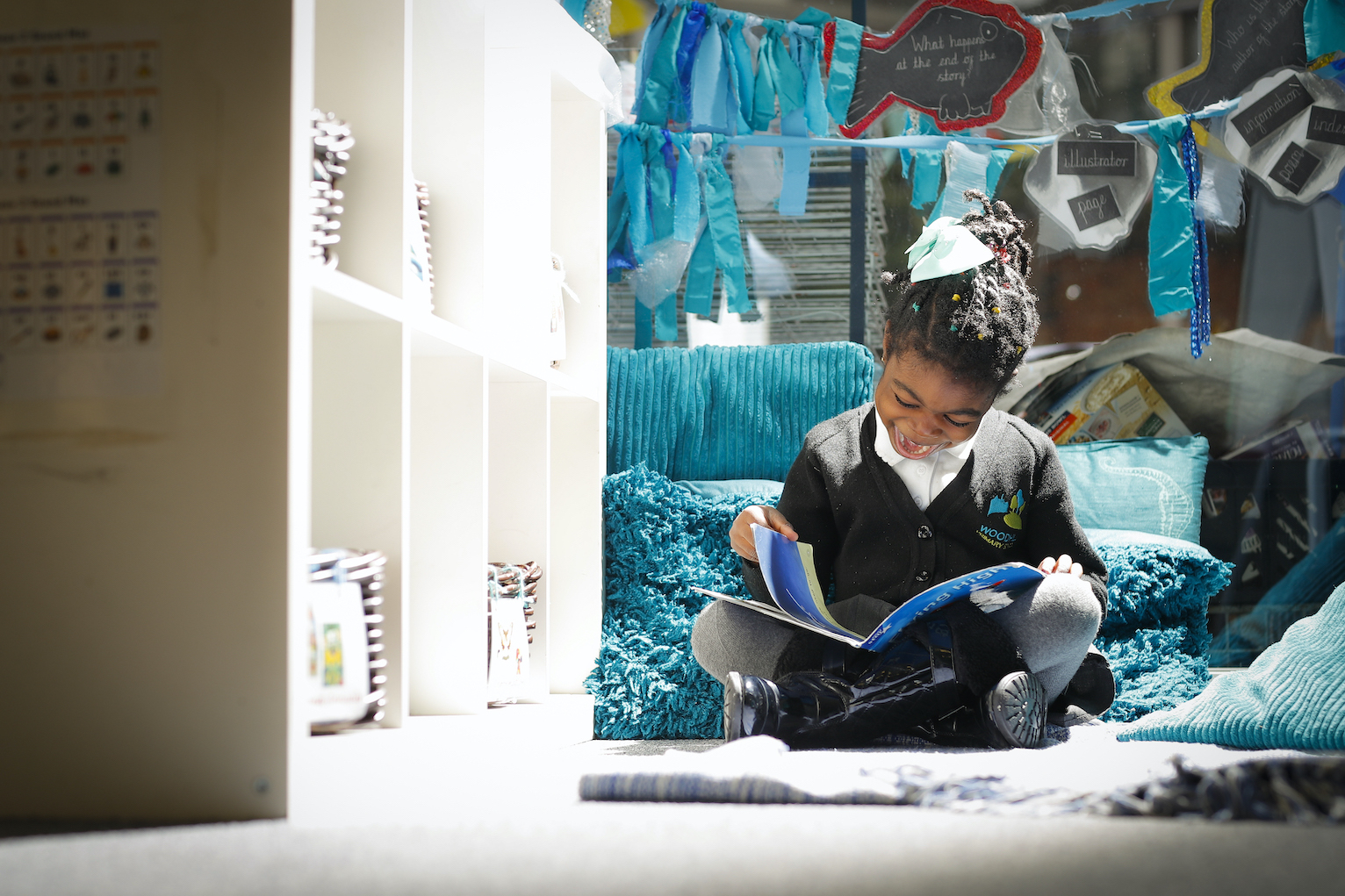
Every child at Woodhill will have...·
- A daily lesson dedicated to the teaching of reading through strategies such as inference, making connections and retrieval.
- Daily scaffolded book talk, modelling the application of reading strategies.
- A close up of new vocabulary to build children’s language and schemas.
- Access to an inviting, purposeful book corner stocked with exciting recommended reads from the CLPE.
- Regular opportunities to read 1:1 with a teacher, who will give live feedback on progress including next steps.
- Weekly opportunities to capture ideas in a written comprehension task.
- Opportunities to read a wide range of texts that build on cultural capital and compliment themes in our global curriculum.
- Opportunities each week to read for pleasure.
- If needed, some children receive regular phonics interventions to keep up not catch up.
- A book to read that is matched to their ability.
- Story time at least three times a week, with relevant texts carefully chosen from our reading canon.
Why reading is important
At Woodhill, we believe reading underpins success across all aspects of the curriculum. We don’t just teach children to read, we create lifelong learners.
Through developing oracy and book talk alongside the basic skills of decoding, children’s language acquisition effectively develops alongside their reading attainment. Through accessing carefully selected, rich texts that are both read and read aloud; our children have multiple exposures to vocabulary and second tier words.
Fluency, comprehension and pleasure are the core values in our approach to developing successful readers.
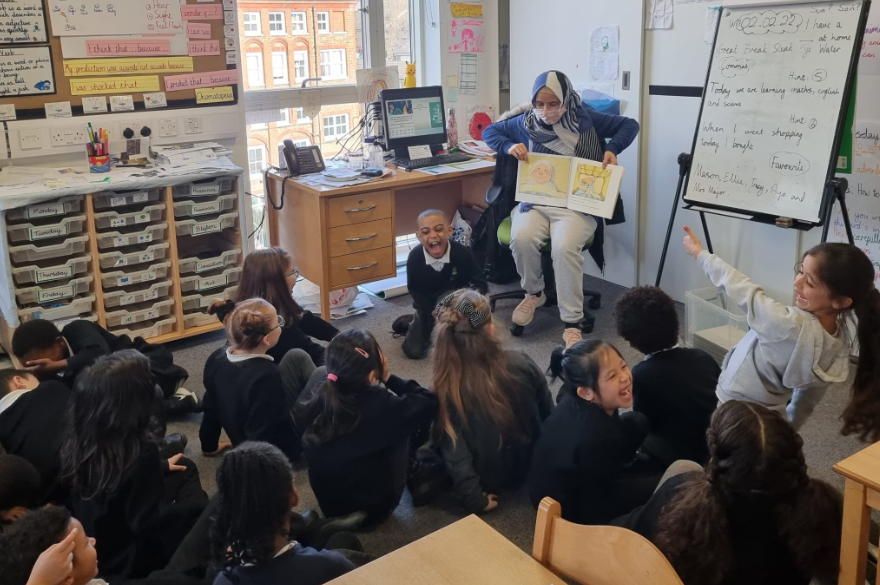
Early Reading and Phonics
How we teach early reading
- Reading is taught in tandem with phonics. After a phonics input children across Reception, Year 1 & Year 2 apply their phonics knowledge by using a fully matched decodable book.
- These daily sessions are 25 minutes long.
- There are approximately 6 children in a group and the teacher reads with one group daily. This is called conferencing.
- Children have extra support where appropriate with a trained adult and reading volunteers. The focus is on ‘keep up not catch up’
- The focus in Reception is on reading strategies of fluency, decoding and blending.
- Books selected by the teacher show cumulative progress according to the sounds the child has been taught that half term.
- Books are closely matched to a child's ability. Children read books which contain sounds they have learnt so they can practise the skills of segmenting and blending We are moving to using the Big Cat Phonics readers explicitly from Jan 2022, which are aligned to the government validated Little Wandle Letters and Sounds Synthetic Systematic Phonics Programme.
- In reception, reading sessions start almost immediately. For children who are not decoding, blending remains a focus
- Children take home books matched to their ability from the same reading scheme used in class.
- Children are able to self - select books and can speak well about which books they choose and why.
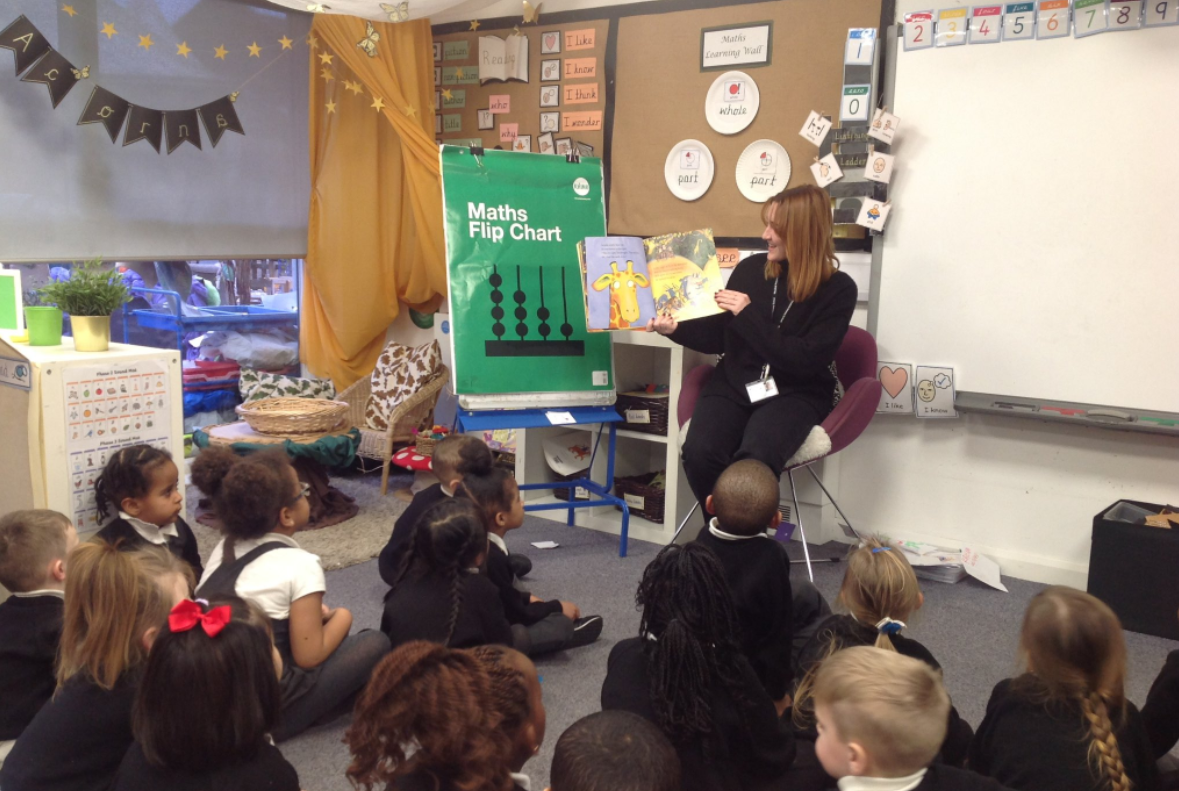
How we teach phonics
- In the Nursery, children follow the Little Wandle Letters and Sounds Revised ‘Foundations for Phonics’ guidance. The focus is on daily oral blending and language development through high quality stories and rhymes.
- In Reception and Y1, children follow the progression within Little Wandle Letters and Sounds Revised programme. Phonics is taught for 25 min every day.
- By the end of Reception, children will have been taught up to the end of Phase 3. If they are ready, children may start Phase 4.
- By the end of Year 1, children will have been taught up to the end of Phase 5.
- In Y2-Y3, phonic lessons are taught daily to children where appropriate – following the model of Little Wandle but plugging specific gaps identified through assessment.
- In Y2-Y6 there are planned catch-up sessions following a set model to address specific gaps. These are taking place at least three times a week, and are often used to target new arrival EAL children.
- All staff including support staff have regular CPD and are confident to deliver a quality first phonics session.
-
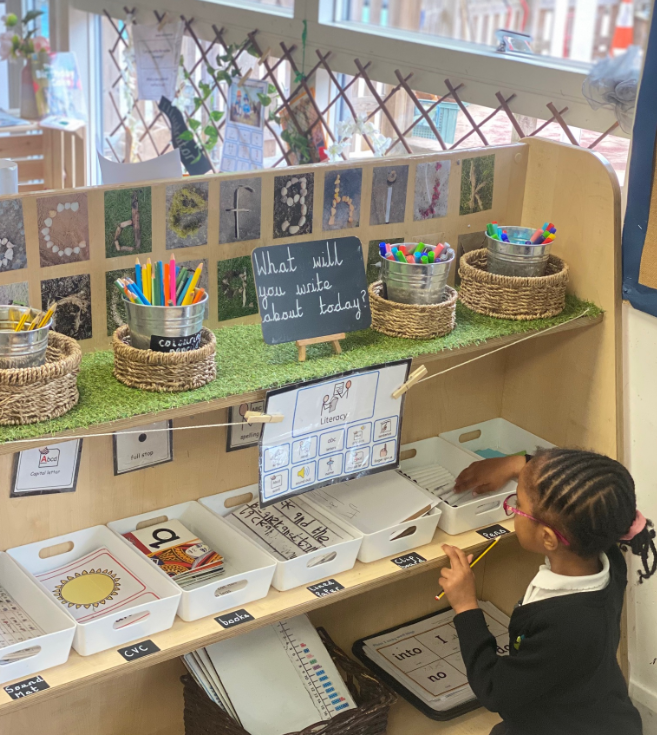
How we assess phonic knowledge.
- In Reception and Year 1, at the end of each week there is a review session which recaps the learning. There are also whole review weeks (pre-planned and bespoke review weeks to address gaps identified by the class teacher’s ongoing formative assessment).
- Children identified in Reception and Y1 as in danger of falling behind are immediately identified and daily ‘keep up’ sessions are put in place – sessions follow the Little Wandle Letters and Sounds Revised programme.
- In Reception and Year 1, the children are assessed at the end of every half term using the Little Wandle Letters and Sounds Revised assessment tracker.
- Children from Reception to Yr 2 are monitored by book band level. This is especially helpful for transition to the next class, so rapid progress can continue.
- The children in Y1 sit the Phonics Screening Check in the summer term.
- Children who do not pass the Phonics Screening Check in Y1, will re-sit this in Y2.
- Children who are currently in KS2 who didn’t leave KS1 at the expected level are monitored by phonics knowledge and reading progress termly.
- Children who are in Y2-Y6 and need ‘catch up’ sessions are assessed through the teacher's ongoing formative assessment as well as half termly summative assessments.
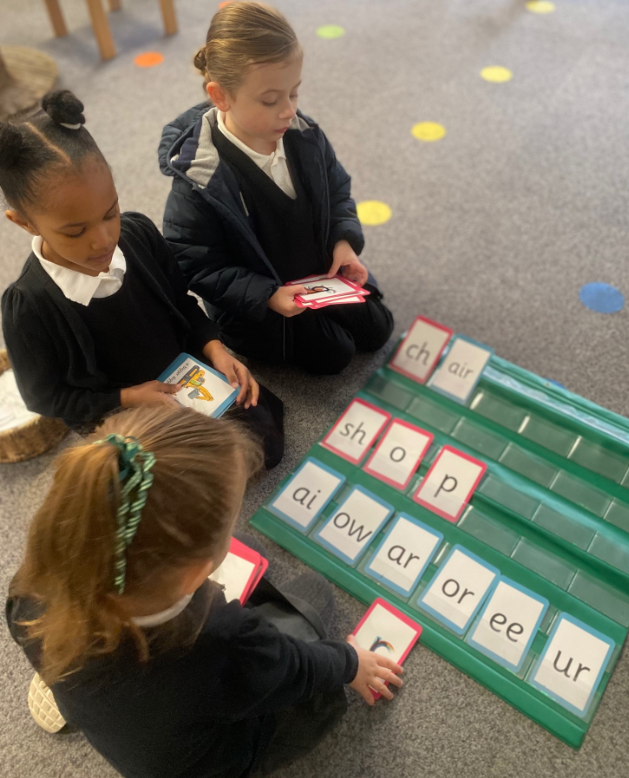
Reading for pleasure at Woodhill
Every child at Woodhill will have...
Curriculum
- Access to a global curriculum based on a core text approach, where topics are taught through high quality books with relatable themes and protagonists that excite and motivate them.
- Dedicated time each day where an adult will read aloud to them from a carefully selected Reading Canon, aimed to build on their cultural capital.
- Daily opportunities to read to an adult and other children in the classroom. These sessions are prioritised to the first lesson of the day.
- Daily opportunities to engage in quality book talk.
- An engaging, clearly labelled, tidy book corner in their classroom with a range of high-quality fiction and non-fiction texts.
- An author focus box in their book corner – to develop a growing taste and preference for certain styles.
- A DEAR (Drop Everything and Read) time every week to choose a book and read for pleasure.
- Some children have the opportunity to participate in a book club, based in our library spaces – time dedicated to enjoy books and engage in book talk.
- A book shed is available in their playground so that children can access books throughout their playtimes.
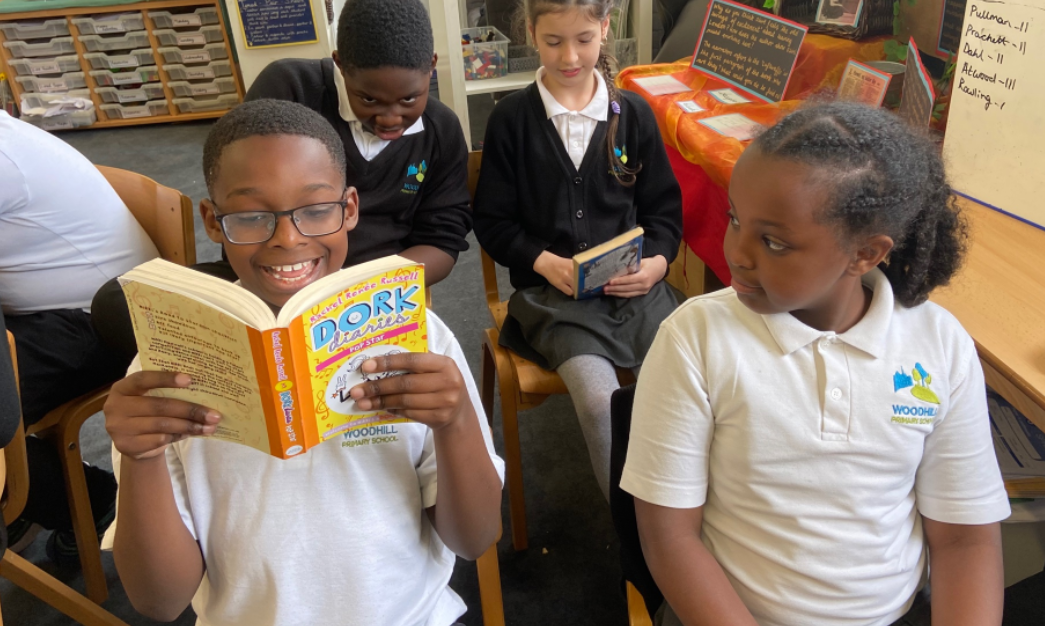
Enrichment
- Participation in World Book Week dress up and enrichment events such as author visits and storytelling.
- Regular author/ storyteller visits- every child will access at least one author event per year, in addition to World Book Day.
- A visit to the local library every term.
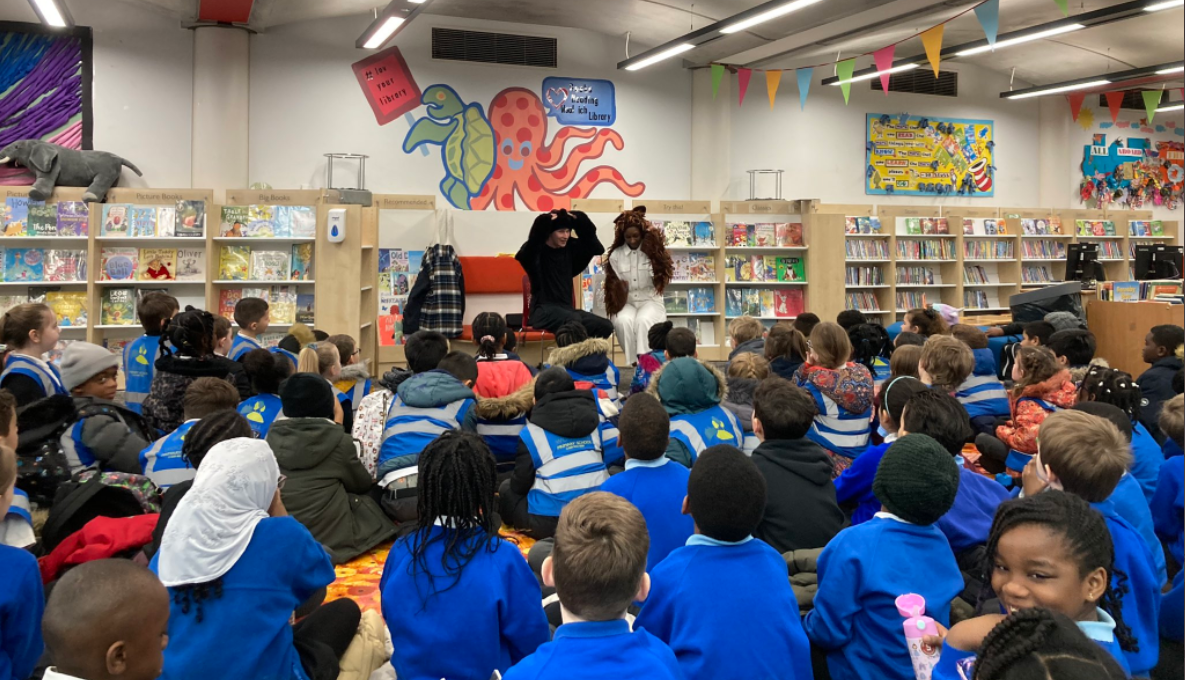
Community
- A termly reading open morning where parents will join their child in a phonics and reading modelled lesson.
- A regular reading open morning where parents can join their child and share a book together.
- Reading challenge cards & certificates to celebrate home reading
Recommended reading lists for EYFS-Y6.
